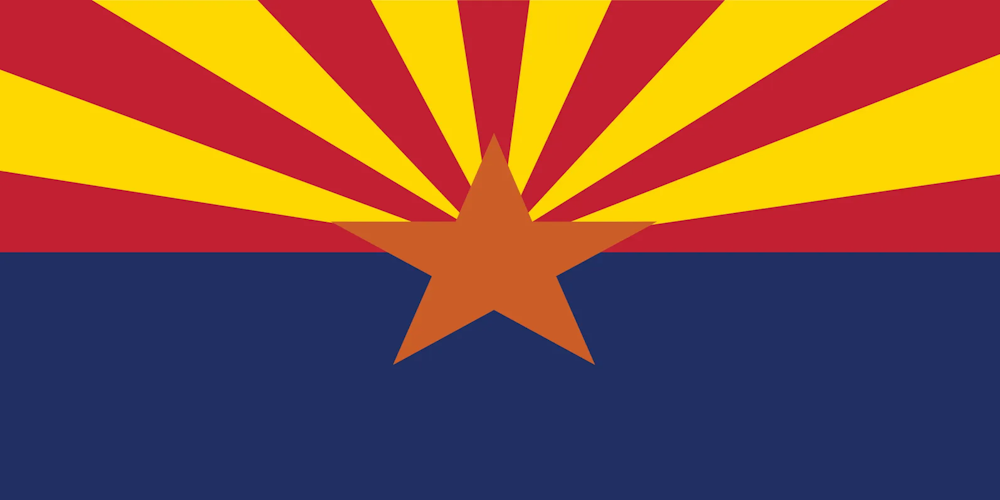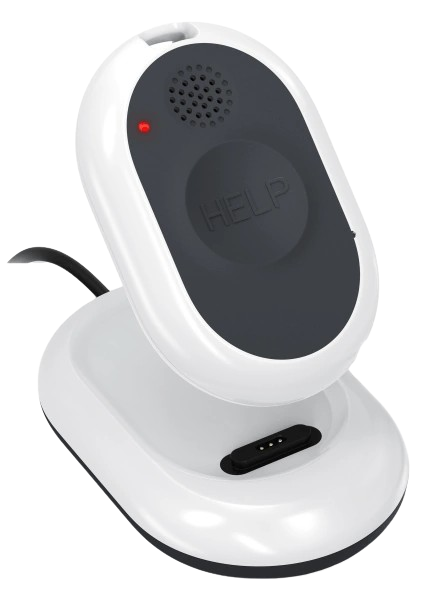In Arizona, ensuring the safety of employees who work alone involves navigating both federal and state-level occupational safety standards. Arizona operates its own state OSHA plan—administered by the Arizona Division of Occupational Safety and Health (ADOSH)—which enforces workplace safety laws aligned with, and in some cases exceeding, federal OSHA guidelines. For individuals who work without immediate supervision or nearby colleagues, proactive measures are crucial to minimize risks and respond quickly to emergencies.
This guide outlines key considerations for lone worker safety in Arizona.
On This Page
Our Guide To Lone Worker Safety Policy And Legislation In Arizona
Arizona is one of the states that operates its own OSHA-approved occupational safety and health program. ADOSH is responsible for inspecting workplaces, enforcing safety regulations, and helping employers understand how to reduce risk. While Arizona does not have a regulation that explicitly defines or governs “lone work,” it follows federal OSHA standards that recognize the unique hazards posed by working in isolation.
OSHA regulations such as 1915.84 emphasize the importance of periodic check-ins for workers operating alone in potentially dangerous conditions. Arizona employers should incorporate these expectations into broader safety strategies, especially for industries with high rates of solitary work, such as agriculture, construction, transportation, and home-based healthcare.
Given Arizona’s expansive rural areas and high-temperature environments, employers must take extra care to ensure that lone workers are not only connected but also protected from heat-related illness, equipment hazards, and delays in emergency response.
How Arizona Defines A Lone Worker
Although Arizona law does not provide a specific definition for a lone worker, the term is generally understood in practice as someone who performs job duties without immediate physical proximity to coworkers or supervisors. These individuals may be out of sight or sound, with no direct access to help should something go wrong.
In Arizona, lone workers are common in settings such as:
- Home healthcare and social work
- Utility field services and inspections
- Long-distance trucking and delivery
- Agricultural operations in remote locations
- Maintenance work at off-hours or in isolated facilities
Employers should evaluate the degree of risk faced by such employees and treat any scenario where timely assistance is not guaranteed as a lone working environment requiring specialized safeguard.
Employing A Lone Worker In Arizona
Arizona employers are required to provide a safe working environment for all employees, including those working alone. This includes identifying hazards specific to solo work and implementing safety measures that reduce the likelihood of injury or harm.
Best practices for employing lone workers in Arizona include:
- Conducting Risk Assessments: Evaluate work conditions, location, and task-specific hazards to determine the level of risk for solo workers.
- Implementing a Check-In System: Use regular intervals—set by task risk level—for workers to confirm their safety via phone, app, or supervisor contact.
- Emergency Planning: Ensure workers have access to emergency contacts and procedures, especially in remote or rural settings where response times may be delayed.
- Providing the Right Tools: Equip workers with mobile safety devices or applications that include features like GPS tracking, emergency alert buttons, and automatic fall detection.
Training is also essential. Employees working alone should be trained not only in general safety protocols but also in recognizing the signs of heat stress, dehydration, and fatigue—critical in Arizona’s desert climate.
Learn How You Can Protect Your Employees With Loneworker.com

With Loneworker.com you can be equipped with the knowledge and the means to protect your employees and protect your business. Contact us today to learn more about how Loneworker.com can protect you and your employees.
How The Safe Lone Worker App Can Protect Arizona Lone Workers And Employers
To enhance safety and accountability, many Arizona businesses are turning to smart safety technology. The Safe Lone Worker app provides a digital solution for employers who need to monitor employees in real time while respecting their autonomy. With features like timed check-ins, panic alerts, and GPS location tracking, the app offers peace of mind for both workers and their managers.
In addition to improving emergency response times, the app creates a record of compliance with safety protocols—an important benefit when demonstrating due diligence under ADOSH inspections or in the event of an incident investigation.
Arizona Lone Worker Policies
Arizona operates its own OSHA-approved state safety program through the Arizona Division of Occupational Safety and Health (ADOSH). This means the state enforces its own workplace safety regulations, which are required to be at least as effective as federal OSHA standards. While Arizona does not have a specific rule exclusively focused on lone workers, employers must ensure that any employee working in isolation is adequately protected under the broader requirements of the state’s occupational safety laws.
We recommend that employers, safety managers, and HR professionals refer directly to the official ADOSH website and federal OSHA resources for the most accurate, up-to-date information. This content is provided for general guidance only and is not intended as a substitute for legal counsel or official regulatory consultation.
Arizona Lone Worker Resources
OHS Contact Centre
- 1-866-415-8690
CDC / NIOSH
- 1-800-232-4636
ADOSH Phoenix / Tucson Office
- 1-855-268-5251

Affordable Monitoring For Lone Workers In Arizona

-
 Monitoring Your Employees' Safety
Monitoring Your Employees' Safety
-
 GPS Tracking And Monitoring
GPS Tracking And Monitoring
-
 Man Down Panic Alerts
Man Down Panic Alerts
-
 24/7 Protection Anywhere
24/7 Protection Anywhere
Lone Worker Legislation
Lone Worker Safety Policies And Legislation By State
-
 Alabama State Safety Policies And Legislation
Alabama State Safety Policies And Legislation
-
 Alaska State Safety Policies And Legislation
Alaska State Safety Policies And Legislation
-
 Arizona State Safety Policies And Legislation
Arizona State Safety Policies And Legislation
-
 Arkansas State Safety Policies And Legislation
Arkansas State Safety Policies And Legislation
-
 California State Safety Policies And Legislation
California State Safety Policies And Legislation
-
 Colorado State Safety Policies And Legislation
Colorado State Safety Policies And Legislation
-
 Connecticut State Safety Policies And Legislation
Connecticut State Safety Policies And Legislation
-
 Delaware State Safety Policies And Legislation
Delaware State Safety Policies And Legislation
-
 Florida State Safety Policies And Legislation
Florida State Safety Policies And Legislation
-
 Georgia State Safety Policies And Legislation
Georgia State Safety Policies And Legislation
-
 Hawaii State Safety Policies And Legislation
Hawaii State Safety Policies And Legislation
-
 Idaho State Safety Policies And Legislation
Idaho State Safety Policies And Legislation
-
 Illinois State Safety Policies And Legislation
Illinois State Safety Policies And Legislation
-
 Indiana State Safety Policies And Legislation
Indiana State Safety Policies And Legislation
-
 Iowa State Safety Policies And Legislation
Iowa State Safety Policies And Legislation
-
 Kansas State Safety Policies And Legislation
Kansas State Safety Policies And Legislation
-
 Kentucky State Safety Policies And Legislation
Kentucky State Safety Policies And Legislation
-
 Louisiana State Safety Policies And Legislation
Louisiana State Safety Policies And Legislation







